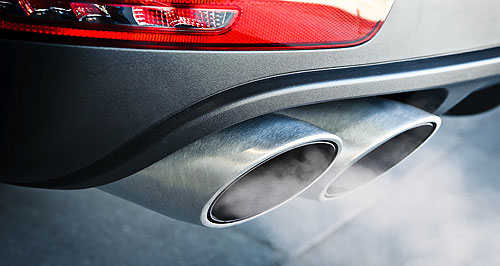Make / Model Search
News - OpelOpel boss rejects diesel cheat claimNo way: Opel CEO Karl-Thomas Neumann has rejected claims Opel cars use a diesel emissions cheat device similar to the one that has thrown Volkswagen Group into chaos. Report suggesting Opel cars use emissions cheat device is wrong: Neumann18 May 2016 OPEL CEO Karl-Thomas Neumann has hit back at accusations by German media organisations and an environmental advocacy group that the car-maker has used software to controls diesel emissions under various circumstances. The allegations come eight months after the Volkswagen Group was rocked by the diesel emissions cheating scandal that has scooped up 11 million cars globally and impacted the company’s reputation and sales. Last week, a joint investigation by Spiegel magazine, ARD television’s Monitor program and environmental group Deutsche Umwelthilfe (DUH) alleged that Opel used specific software to lower emissions controls in a range of situations, including when driving faster than 145km/h and exceeding 2400rpm. Discrepancies reportedly were found in the Opel Zafira MPV and Insignia mid-size sedan. Late last week, Opel released a statement highlighting a report from the German federal ministry of transport and digital infrastructure from April that concluded that no vehicle tested – “apart from certain cars of a competitor” – was fitted with a defeat device. General Motors’ European arm also pointed to similar studies in the United Kingdom and France that came to the same conclusion. Dr Neumann this week slammed the allegations via a press release, sayng Deutsche Umwelthilfe (DUH), Monitor and Spiegel creates the impression that they found new facts suggesting Opel used unprecedented illegal defeat devices. “These allegations are wrong!” he said “As we have stated before, we at Opel do not have any illegal software. Our engines are in line with the legal requirements. We anticipate the authorities to share this point of view. “We have always cooperated transparently with the authorities in Germany and Europe and we will continue to do so.” Dr Neumann described the accusations as “misleading oversimplifications and misinterpretations of the complicated interrelationships of a modern emissions control system of a diesel engine”, adding that emissions control devices are “sophisticated integrated systems, which cannot be broken down into isolated parameters”. Given that Opel was not provided with the methods used by DUH, Monitor and Spiegel for the test, Dr Neumann said the car-maker could not analyse the data before criticising the German environmental body. “Based on our own and independent measurements and on the experience with experiments published by DUH before, we have to repeat that we do not believe that these results are objective or scientifically founded.” Dr Neumann said Opel had “learned lessons” from the recent focus on emissions from authorities and the public and said that with every new engine Opel develops, “we strive to be the benchmark”. “We will further improve the efficiency of emissions after-treatment of our SCR diesel engines, wherever we can and as far as the laws of physics allow. This includes a voluntary service action for cars already on the road, starting in June.” In its statement least week, Opel highlighted the differences between lab-based emissions tests, which it says are in “urgent need of reform”, and real-world road test conditions. Opel also called on the automotive industry as a whole to be more transparent in a bid to regain the trust of consumers. “We are convinced that the industry has to regain trust by increasing the transparency with customers and authorities and we have taken definitive steps in this direction,” says its statement. The global automotive sector came under further scrutiny late last month when Mitsubishi Motors Corporation admitted to manipulating the fuel economy figures for 625,000 Mitsubishi and Nissan-badged Japanese-market mini ‘kei’ cars. Renault, PSA Group and Daimler have all been challenged on their emissions figures by various government or independent bodies since the Volkswagen Group scandal broke, but so far VW is the only company that has been found to use the diesel emissions cheating software.  Read more27th of April 2016  Mitsubishi admits 25 years of fuel manipulationFuel test scandal widens at Mitsubishi with admission that it started in 199122nd of April 2016  PSA Group raided by French authoritiesFrench government raids PSA Group over emissions reporting21st of April 2016  Mitsubishi admits tweaking fuel-use figuresMore than 625,000 mini cars built by Mitsubishi had falsified fuel economy figures29th of February 2016  Volkswagen begins diesel emissions recallRecall of 2.0-litre Volkswagen diesel models starts with Amarok pick-up |
Click to shareOpel articlesMotor industry news |











Facebook Twitter Instagram